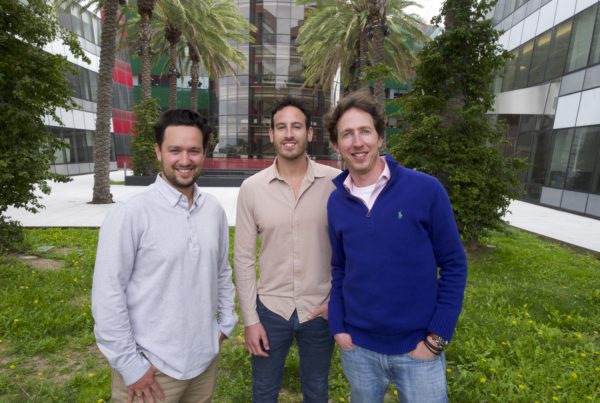
Shipping and cargo services is one of the more fragmented and analogue verticals in the world of industry, with hundreds of thousands of businesses involved in a myriad of aspects of a process that is fundamentally physical (not digital) by its nature. Today, a company called PayCargo, which built a platform to bring one key aspect of it — how companies in the business of shipping products and specifically consumer goods pay each other — into the modern and digital age, is announcing $130 million in funding to expand its platform.
The funding, a Series C, is coming from a single investor, Blackstone Growth, and PayCargo — based out of Coral Gables, FL — said that it will be used to expand into more geographies, to build out more products around financial and business data, and potentially also for M&A, since the area of providing services to the shipping industry is as fragmented as the shipping industry itself.
PayCargo is not disclosing its valuation, but notably, the company is an example of one of the kinds of startups that is not finding it challenging to raise money at the moment: it is profitable, and it has been since it was founded in 2009; it is working in an enterprise vertical that still has a long way to go before it’s saturated with competing services filling the same need PayCargo is; and that enterprise vertical itself represents a massive opportunity with the continued growth and globalization of e-commerce overall.
“Last year we moved over $10 billion in payments, and we are now on pace for $20 billion in 2022,” said Eduardo Del Riego, PayCargo CEO, in an interview.
The company today integrates with around 50 of the larger freight management systems, transportation management systems, ERP and terminal operating systems used by shipping and cargo companies — and again, that there are 50 “larger” platforms in that wider operational software category shows just how fragmented all of this is — and the 40,000+ customers using PayCargo (the list includes Kuehne + Nagel, DHL, DB Schenker, BDP, Seko Logistics, UPS, YUSEN Logistics and vendors like Hapag-Lloyd, MSC, Ocean Network Express, Alliance Ground, Swissport and Air France) can currently source and pay more than 5,000 global logistics providers, with that number continuing to grow.
For some perspective on that number, when we covered a more modest $35 million Series A investment into the company from Insight partners in 2020, it had integrations with 4,000 providers and worked with 12,000 customers. In between then and now it also raised a $125 million Series B in which it noted that potentially there are up to 40,000 providers to tap for integrations in the years ahead. Indeed, Del Riego noted to me that PayCargo’s current size still just represents a tiny fraction — less than 2% — of the overall market.
The core of the PayCargo platform is a set of cloud-based tools for those ordering shipping services by land, sea or air to send payments, and for vendors to receive them, a set of APIs to integrate the tools into a company’s existing FMS and other IT, as well as financing services for those who do not want to pay for the shipments up front.
E-commerce saw a huge windfall of activity during Covid-19 — when consumers who didn’t have a lot of places to go and spend money bought significantly more goods online.
The growth of the freight market may have slowed down since that peak — not just because we as a whole are moving back into the physical world; but arguably other factors around the globe like wars and embargoes are changing how things are moving around — but Del Riego pointed out to me that this hasn’t represented a decline to the company in terms of its own revenues, since its cut is made as a flat fee on each transaction, not the size of the transactions themselves.
As with others building IT services for the freight and shipping industries — they include Zencargo, FreightHub, Sennder, Flexport, and Cargo.com — the opportunity is about building more cloud-based services that work smoothly and securely and with other pieces of the operations puzzle; but in many cases, it’s still just about providing tools to replace paper and fax machines.
And so while that means that a good percentage of PayCargo’s customers have not really internalized or indeed yet doubled down on “digital transformation”, there is an opportunity for the company to become a partner and provider of more data-driven services for its users to fill that gap, too: the company, by the nature of powering transactions between different companies in the ecosystem, becomes a holder of a huge amount of data on how the industry is working: how different products are being shipped, timings and pricing, most active geographies and more. Companies will want to have that information to help shape their own strategies and know how others are performing in the market, but in many cases the kinds of customers PayCargo works with lack the tools to extract, analyse and glean insights from that information themselves.
That too is another reason why Blackstone was interested, and why PayCargo has the opportunity for a bigger fintech play here.
“I think today the opportunity is to provide the data in a digestible and synthesized manner, to take that and productize it for those customers,” said Vini Letteri, senior MD and head of financial services for Blackstone Growth. “Yes in the future, that can also be a handoff of data. But as supply chains get disrupted, there will be more demand for that data, so products to access that will be valuable.”





